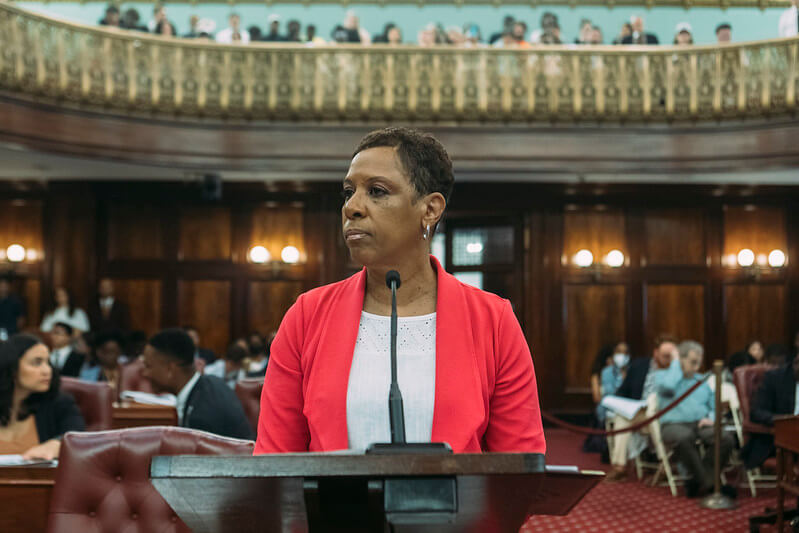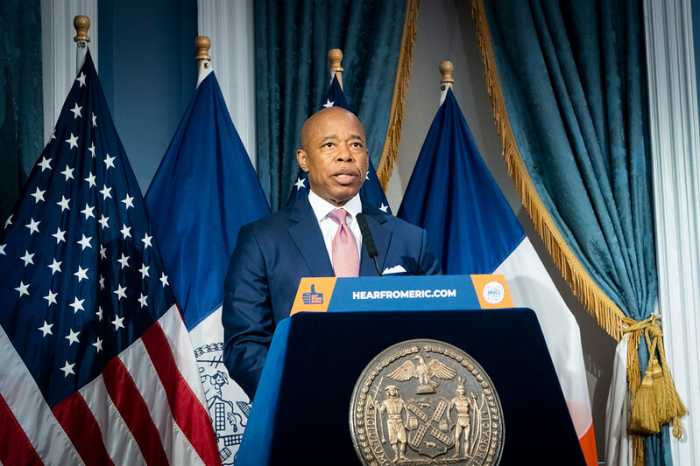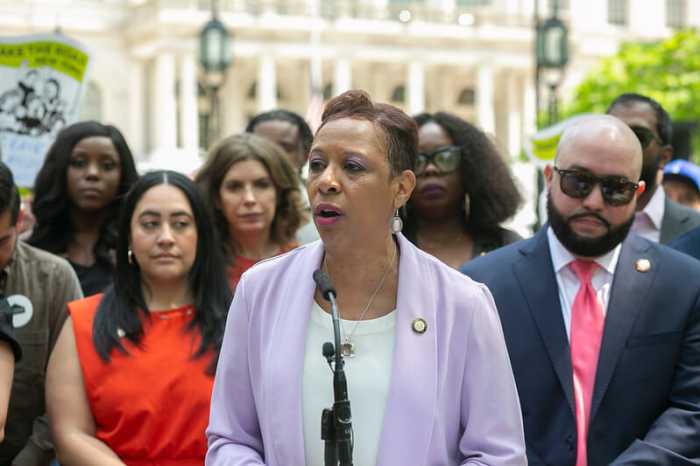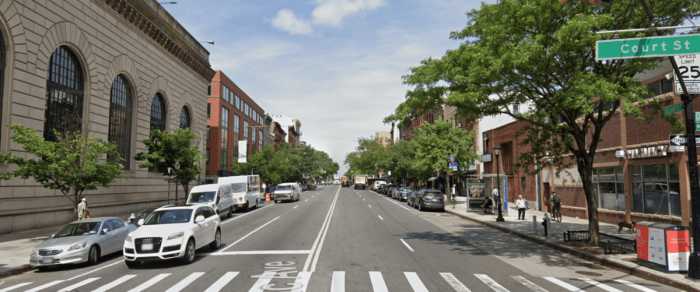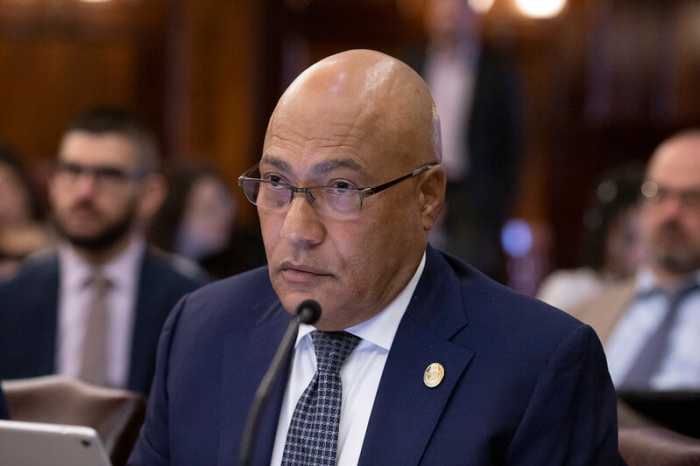The $107 billion Fiscal Year 2024 city budget passed the City Council Friday with a handful of “no” votes mostly from progressive members who protested the spending cuts that remained in the final plan.
The budget, the largest in Big Apple history, passed the council by 39 to 12 votes.
The dissenters included 11 progressive Democrats: Alexa Avilés, Charles Barron, Tiffany Cabán, Carmen De La Rosa, Jennifer Gutiérrez, Shahana Hanif, Christopher Marte, Sandy Nurse, Chi Ossé, Kristin Richardson Jordan, Lincoln Restler, and Republican Ari Kagan.
The budget was tentatively agreed to on Thursday with Mayor Eric Adams and Speaker Adrienne Adams shaking hands during a tense ceremonial press conference.
Speaker Adams said Thursday and during the Friday council meeting that much of the budget negotiations focused on clawing back what the council had identified as around $400 million in funding cuts the mayor put forward in his own budget plans.
“As a result of the proposed budgets presented to us that contained cuts in just about every area that only grew deeper throughout this process, the council was left with the responsibility and tasked with fighting for restorations to the harmful cuts across the entire budget,” the speaker said.
The cuts that were reversed included $36.2 billion to the city’s three public library systems; $32.9 million to the New York City Housing Authority (NYCHA) for renovating vacant apartments; $7 million for the Department of the Aging for meals for seniors; and $58.2 million for several City University of New York programs.
The mayor has repeatedly said he moved to collectively reduce agency budgets by billions of dollars as a way to balance the city’s finances amid the skyrocketing cost of providing for over 80,000 asylum seeking migrants who have flooded the city over the past year. The administration says sheltering, feeding and delivering services to migrants has already cost city taxpayers $1.4 billion and the amount will grow to at least $4.3 billion by July 2024.
Additionally, the mayor has said expensive municipal union contracts, $500 million in cost shifts from the state budget, and a potential recession in the coming years adds to the city’s fiscal woes.
The mayor, in a statement, took a victory lap following the council’s approval, saying the budget keeps the city “safe and clean” while also maintaining fiscal prudence.
“Despite myriad challenges and unexpected crises we have faced, I am proud to say we have successfully navigated these cross currents to arrive at a strong and fiscally responsible budget that will continue to ‘Get Stuff Done’ for New Yorkers,” he said.
While many of the members who voted against the budget applauded the speaker for working to restore a portion of the spending reductions, they said too many cuts remain to support the plan.
“This council has been clear-eyed that the mayor’s approach is wrong and I am again grateful to our leadership for preventing the worst cuts from taking effect, especially for our libraries and CUNY,” Restler, who co-chairs the council’s progressive caucus, said.
“But partial restorations will not make enough of a difference,” he added. “Half-loafs are not going to cut it. Our city is in crisis and we need to invest in a more secure future.”
Restler highlighted cuts to the Department of Housing Preservation and Development (HPD) and the Human Resources Administration (HRA) he said were included in the budget that fund supportive housing units.
In casting her “no” vote, Nurse pointed to a $17 million cut to programs that help detainees on Rikers Island reenter society with job training and assistance finding housing.
Hanif, the Progressive Caucus’ other co-chair, said the mayor refused to invest an additional $70 million in funding for legal service organizations in the budget to help migrants apply for asylum.
“This austerity is also reflected in the mayor’s short sighted refusal to allocate any new legal services funding for the over 80,000 asylum seekers our city has welcomed,” Hanif said. “This refusal will limit the ability of our newest neighbors to get work authorization, leaving them dependent on a strained shelter system.”
But Council Minority Leader Joe Boreli, a Republican who voted for the budget, said the city has already shelled out far too much on the migrant crisis—money that could have been used to fund the agencies his colleagues said are being neglected. He added that the federal government needs to step in and provide an “off-ramp” by reimbursing the city for what it’s spending on the influx.
“It’s time to drop the check on the White House,” Borelli said. “Joe Biden finishes his ice cream and the bill comes. We have to be the ones to drop the check there because this is $1.4 billion that could have been used on the services that we’re talking about, many of which were not able to be funded.”



